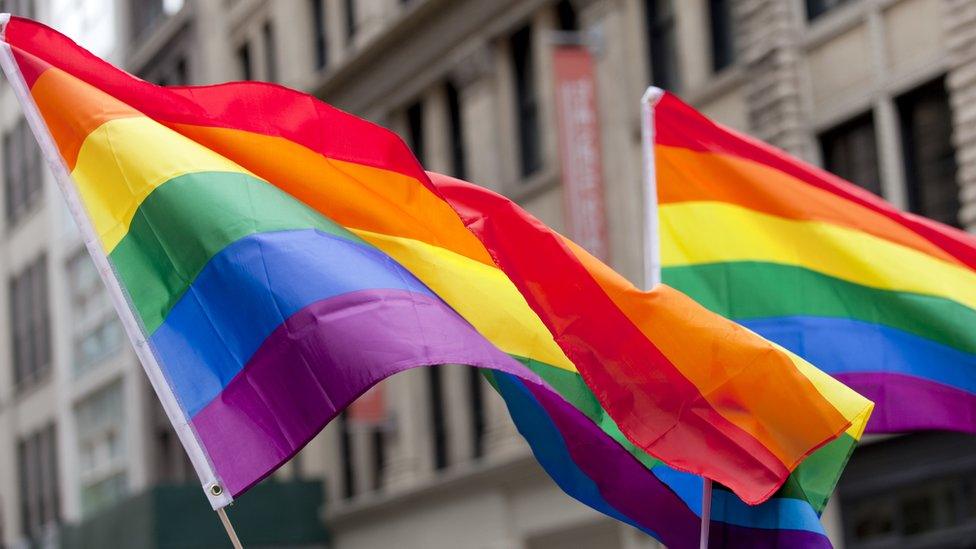Rights watchdog 'should lose status' over trans row
- Published
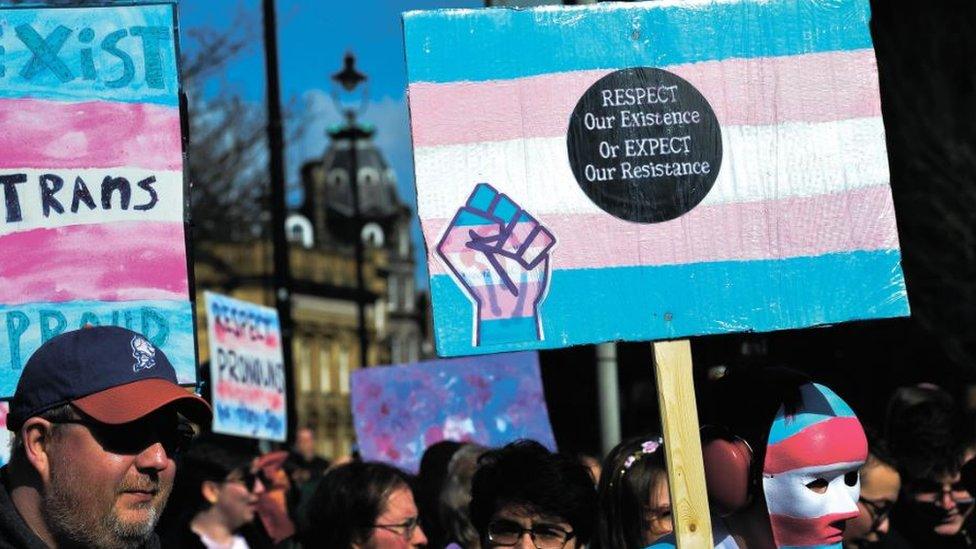
Britain's human rights watchdog faces a legal challenge to its status over a row about transgender rights.
In documents shared exclusively with the BBC, campaigners say they want the Equality and Human Rights Commission's status as an independent group revoked.
It comes after the EHRC was criticised for asking Scotland to pause its plans to make it easier for people to change their sex on their birth certificate.
The EHRC said critics were "aiming at the wrong target".
LGBT charity Stonewall, backed by the Good Law Project, has drawn up a submission to the Global Alliance of National Human Rights Institutions, calling for the EHRC to lose its "A rating".
This would prevent it from being able to make representations at the UN Human Rights Council, or its committees on human rights.
The 19-page submission accuses the EHRC of being "excessively" influenced by the UK government in the appointments of the chair and board members.
The EHRC told the BBC it takes all decisions impartially and "based on evidence in the UK and internationally".
"All appointments to our non-executive and executive roles are made through a fair, open and transparent recruitment process.
"The way the commission is governed and commissioners appointed is set out in the Equality Act, and has not changed since the commission was established."
The EHRC is funded by the Government Equalities Office, but says it operates independently of ministerial control.
Jolyon Maugham, of The Good Law Project, told BBC News: "The EHRC is subject to a level of oversight and micro-management from the department which is just not consistent with being a UN Human Rights Institution."
Change of stance
The submission accuses Foreign Secretary Liz Truss, who is also the women and equalities minister, of making "politically motivated" appointments to the EHRC.
Since Ms Truss's appointments took up their posts, the submission letter alleges there has been a marked change in the EHRC's stance on Scotland's planned changes to the Gender Recognition Act.
A spokesperson for the government's Equality Hub insisted the EHRC remains an independent public body, adding that the government is "fully committed to advancing LGBT rights".
"In recent years we have taken great strides, including reducing the cost of applying for a Gender Recognition Certification."
There has been controversy over the proposals, with campaign groups and some politicians questioning how they could affect women-only services.
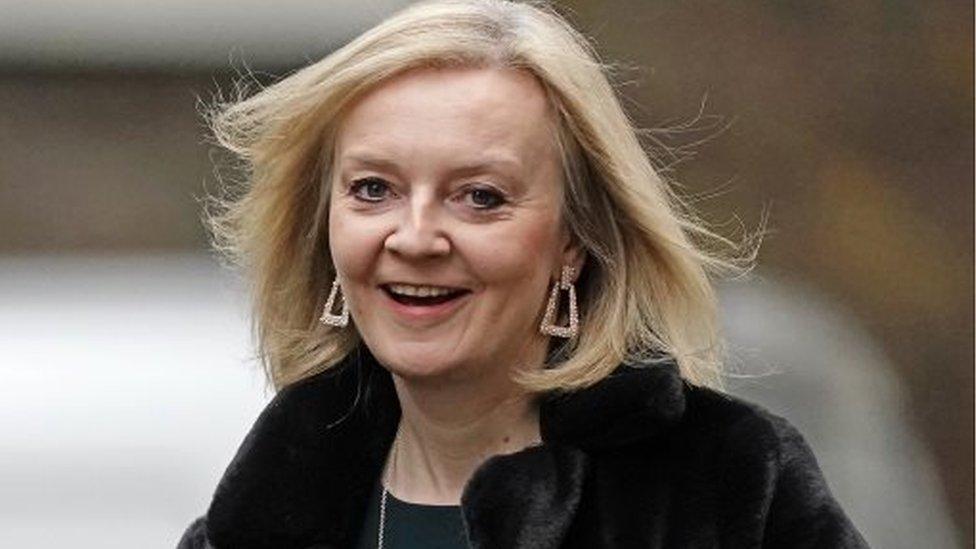
Liz Truss is accused of politically-motivated appointments
In a 2018 statement, still available on its website, external, the EHRC said it was its "firm legal view" that the reform of the Gender Recognition Act would not affect those services.
This position was re-iterated in 2020, external, when the EHRC said there is "no reason" why making it simpler for people to legally change their gender would have an impact on protected spaces or services.
However, in a statement published in January 2022, the EHRC called for the plans to be paused, and noted "concerns" around single-sex services, but did not elaborate on what those concerns were.
In response to the legal challenge, the EHRC's chief executive told BBC News that campaign groups should be working with, rather than against them.
"The EHRC has the power to prosecute people and companies that discriminate against trans people - we have done so," said Marcial Boo.
"Instead of criticising the statutory regulator that exists to protect the rights of everyone in Britain, campaign groups should work with us to identify discrimination against LGBT people, so we can take action together to stop it."
Nancy Kelley, CEO of Stonewall, told the BBC she believed there was "credible evidence" that the EHRC no longer met the criteria of a national human rights institution.
"The politicisation of the UK's human rights body has placed trans people in the firing line, but this attempt to create a hierarchy of human rights in the UK is a very real threat to everyone, particularly those of us protected by the Equality Act."
- Published4 May 2021
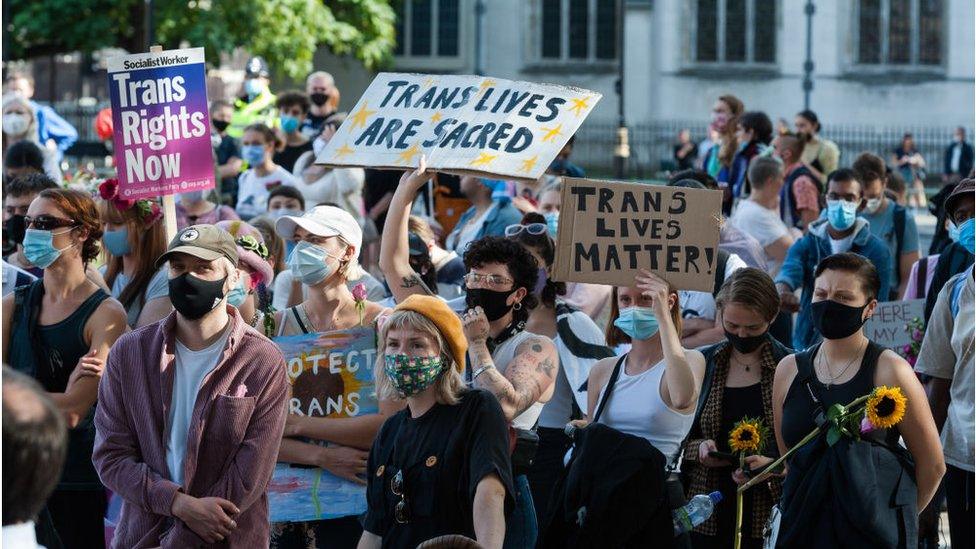
- Published21 December 2021
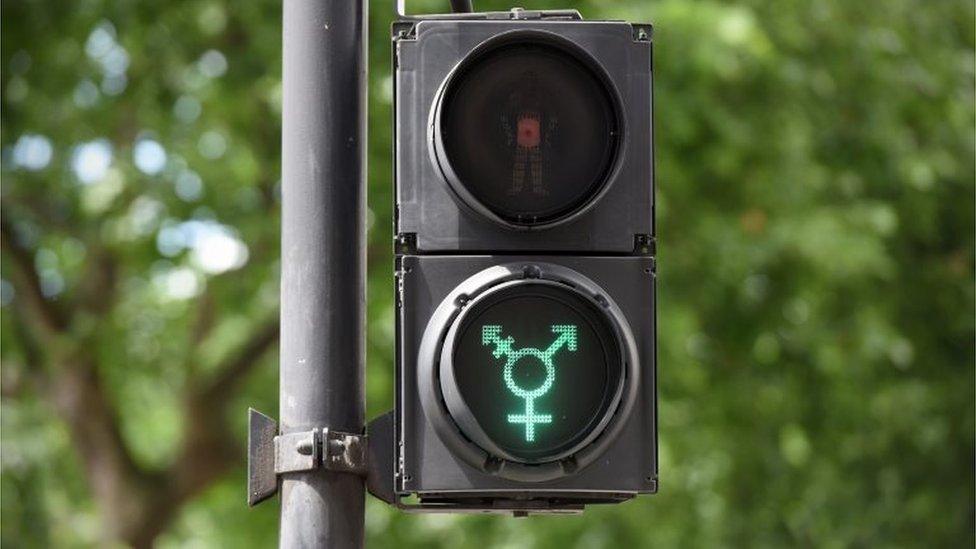
- Published2 February 2022
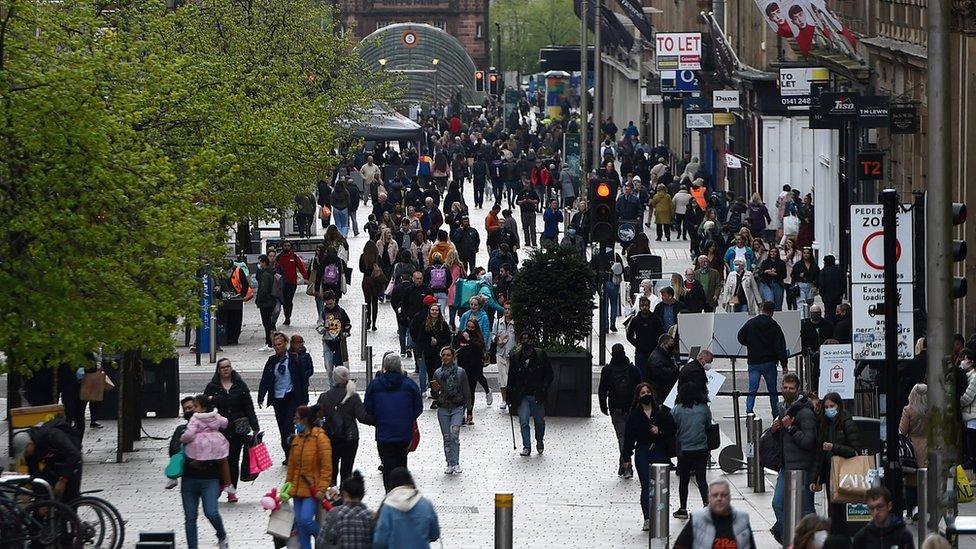
- Published17 December 2019
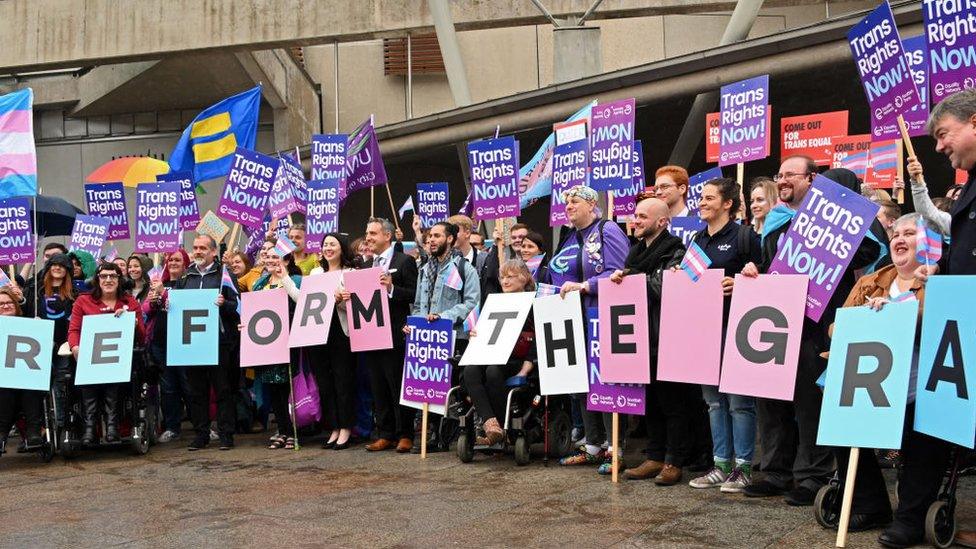
- Published24 April 2019
